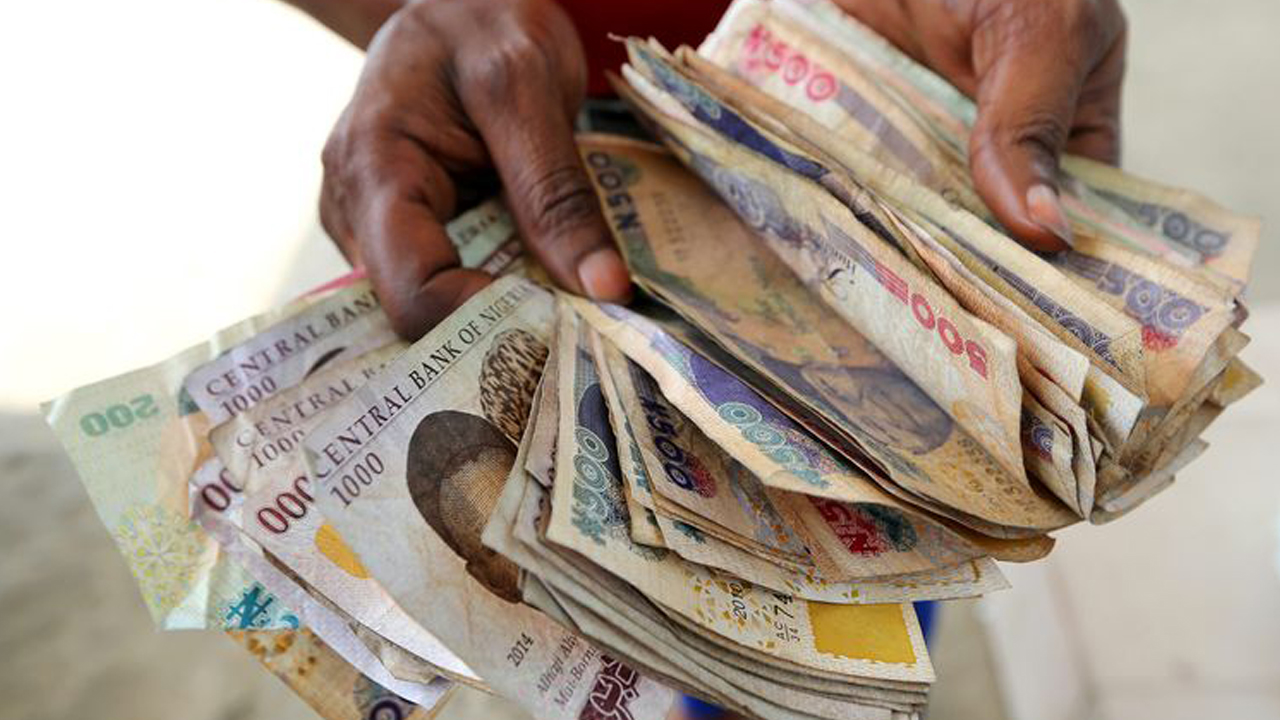
Nigeria’s total public debt has reached N121.67tn, an increase of N24.33tn or 24.99% within three months, according to the Debt Management Office (DMO).
This new figure is up from a total debt of N97.34tn ($108.23bn) as of December 2023.
In a statement on Thursday, the DMO detailed that the public debt includes the domestic and external debts of the Federal Government of Nigeria, the 36 state governments, and the Federal Capital Territory between January and March 2024.
The report stated, “Nigeria’s total public debt stood at N121.67tn ($91.46bn) as of March 31, 2024. The comparative figure for December 31, 2023, was N97.34 trillion ($108.23bn). Total domestic debt was N65.65tn ($46.29bn) while total external debt was N56.02tn ($42.12bn).”
The increase is primarily driven by naira depreciation, which reduced the total debt in dollar terms by $16.77bn or 18.34%.
The DMO used an official exchange rate of N1,330/$ to convert external debts to naira from the N899.39 used to convert the debt in December 2023.
Excluding the impact of the naira exchange rate movement in the first quarter of 2024, domestic debt increased from N59.12tn on December 31, 2023, to N65.65tn on March 31, 2024.
The 36 states and the FCT have an external debt of $3.1bn and a domestic debt of N4.068tn.
The rise is also attributed to new borrowing to partly finance the 2024 budget deficit and the securitisation of a portion of the N7.3tn Ways and Means advances at the Central Bank of Nigeria.
The statement added, “Excluding naira exchange rate movements in Q1 2024, only the domestic debt component of total public debt grew from N59.12 trillion on December 31, 2023, to N65.65 trillion on March 31, 2024. The increase was due to new borrowing to part-finance the 2024 budget deficit and securitisation of a portion of the N7.3 trillion Ways and Means advances at the Central Bank of Nigeria.”
On Thursday, The PUNCH reported that the government borrowed a total of $4.95bn in loans from the World Bank in the past 12 months amidst concerns about the increasing costs of servicing external debt.
The government is also expecting fresh loan approvals worth $4.4bn from the World Bank and the Africa Development Bank over the next year.
An analysis revealed that the bank approved funding for six projects including $750m for power sector financing, $500m for women empowerment, $700m for girl child education, $750m for renewable energy solutions, $750m for resource mobilisation reforms, and $1.5bn for economic stabilisation reforms.
President Bola Tinubu has expressed his administration’s commitment to breaking the cycle of overreliance on borrowing for public spending and the resultant burden of debt servicing.
Tinubu recently stated that the country could not continue to service its debt with 90% of its revenue, warning that such a path is unsustainable and could lead to disaster.
He said, “Can we continue to service external debts with 90% of our revenue? It is a path to destruction. It is not sustainable. We must make the very difficult changes necessary for our country to wake up from slumber and be respected among the world’s great nations. To build a great nation, we must make bold decisions; even though it may be painful, it is not about you and me. It is about generations yet unborn.”
The Minister of Finance and Coordinating Minister of the Economy, Wale Edun, has been vocal against loans, emphasizing the need for the country to rely less on borrowing to stabilize the economy. However, it remains to be seen if this promise will be kept.
In a document titled ‘2024: The Hard Road Ahead,’ the Chief Executive Officer of Financial Derivatives Company, Bismarck Rewane, highlighted that Nigeria’s debt was becoming unsustainable and warned that the country’s debt burden would be worsened by high interest rates in 2024.
He stated, “Nigeria’s debt is becoming unsustainable. Nigeria serviced its debt with 99% of its revenue in H1’23. Nigeria’s debt burden will be exacerbated by high interest rates in 2024. Efficient use of borrowed funds is crucial for its debt sustainability. The federal government must spend on productive sectors to boost revenue sources.”
Rewane noted that a 1% increase in public debt would have a 16.7% negative effect on GDP, and if public debt increases to $114.3bn, real GDP growth will fall to 2.12%.
Despite the high debt burden, Rewane believes Nigeria is likely to withstand the shock.
West Ham United has sacked manager Julen Lopetegui after just 22 games in charge, with…
Cristiano Ronaldo has reportedly upgraded his private jet to a Gulfstream G650, a top-tier aircraft…
The Nigerian Navy has announced the rescue of eight police officers and one civilian after…
The remains of Victor Tyohemba, his wife Mrs. Erdoo, and their two daughters, Miss Agnes…
The naira continued its decline against the dollar in the foreign exchange market on Tuesday,…
The National Spokesman of the All Progressives Congress (APC), Felix Morka, has dismissed allegations by…